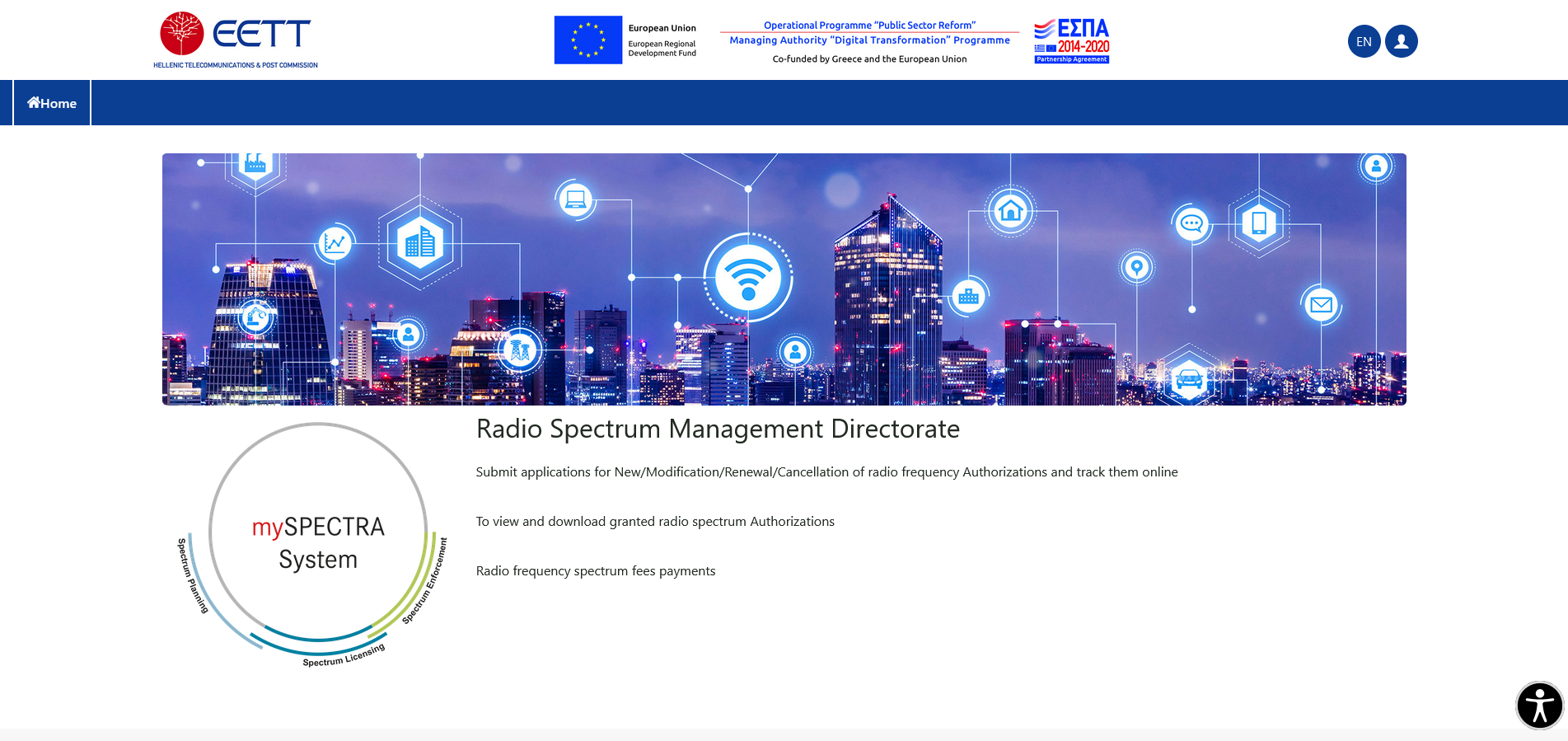The Hellenic Telecommunications and Post Commission (EETT) is an independent authority with administrative and financial autonomy. It constitutes the National Regulatory Authority (NRA) for the electronic communications and postal services markets, in which it also exercises exclusively all the competences of a competition authority. EETT has been designated as the Digital Services Coordinator (DSC) of Greece, having also other competences related to digital markets.
EETT
- regulates, supervises and monitors:
- the electronic communications market, in which companies/operators of fixed and/or mobile services, wireless communications and the Internet are primarily active,
- the use of the radio frequency spectrum, having, inter alia, competence to grant, revoke or restrict the rights of use of radio frequencies and to license antenna constructions, as well as regarding matters related to the conditions for placing on the market and use of radio equipment,
- the postal services market, in which traditional post and courier operators are active.
- exercises exclusively all the powers of the Competition Authority with all relevant powers and monitoring rights for the implementation of the national and European Union (EU) competition legislation in the electronic communications and postal services markets. In this context, EETT ensures the smooth functioning of the markets, effectively addressing the risks of distortion of competition and safeguarding users’ rights.
- is the Digital Services Coordinator. Within this framework, EETT enforces the compliance of intermediary digital services providers, who are active in Greece, with the Digital Services Act and supervises its implementation. It also ensures coordination at national level and contributes to the effective and consistent implementation of the Act in the EU.
- resolves disputes between intellectual property rights holders and digital platforms, by issuing a non-binding opinion in the event of failure in negotiations between them to determine the remunerationpaid to publishers. In addition, EETT issues a Regulation setting out the criteria for the calculation of publishers’ remuneration by information society service providers.
- is the competent authority for monitoring and enforcing compliance with certain provisions of the EU Regulation on combating the dissemination of terrorist content on the Internet.
- has competences regarding the process for blocking access to illegal transmissions via digital platforms.
EETT’s operation is governed by Articles 6 to 11 of Law 4070/2012 (Government Gazette-GG 82/A/2012) and its powers by Law 4070/2012 (GG 82/A/2012), Law 4053/2012 (GG 44/A/2012), Law 4463/2017 (GG 42/A/2017), Law 4727/2020 (GG 184/A/2020), Law 4994/2022 (GG 215/A/2022), Law 4996/2022 (GG 218/A/2022), Law 5067/2023 (GG 189/A/2023), Law 5099/2024 (GG 48/A/2024) and Ν.5179/2025 (GG 26/Α/2025).



